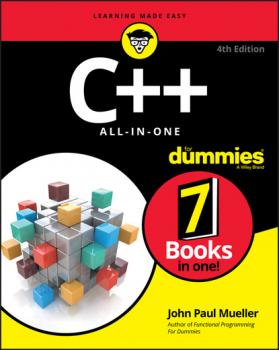John Wiley & Sons Limited
Все книги издательства John Wiley & Sons LimitedYou CAN Stop Stupid
Stopping Losses from Accidental and Malicious Actions Around the world, users cost organizations billions of dollars due to simple errors and malicious actions. They believe that there is some deficiency in the users. In response, organizations believe that they have to improve their awareness efforts and making more secure users. This is like saying that coalmines should get healthier canaries. The reality is that it takes a multilayered approach that acknowledges that users will inevitably make mistakes or have malicious intent, and the failure is in not planning for that. It takes a holistic approach to assessing risk combined with technical defenses and countermeasures layered with a security culture and continuous improvement. Only with this kind of defense in depth can organizations hope to prevent the worst of the cybersecurity breaches and other user-initiated losses. Using lessons from tested and proven disciplines like military kill-chain analysis, counterterrorism analysis, industrial safety programs, and more, Ira Winkler and Dr. Tracy Celaya's You CAN Stop Stupid provides a methodology to analyze potential losses and determine appropriate countermeasures to implement. Minimize business losses associated with user failings Proactively plan to prevent and mitigate data breaches Optimize your security spending Cost justify your security and loss reduction efforts Improve your organization’s culture Business technology and security professionals will benefit from the information provided by these two well-known and influential cybersecurity speakers and experts.
Applied Organic Chemistry
An indispensable guide for all synthetic chemists who want to learn about the most relevant reactions and reagents employed to synthesize important heterocycles and drugs! The synthesis of natural products, bioactive compounds, pharmaceuticals, and drugs is of fundamental interest in modern organic chemistry. New reagents and reaction methods towards these molecules are being constantly developed. By understanding the mechanisms involved and scope and limitations of each reaction applied, organic chemists can further improve existing reaction protocols and develop novel efficient synthetic routes towards frequently used drugs, such as Aspirin or Penicillin. Applied Organic Chemistry provides a summary of important (name) reactions and reagents applied in modern organic chemistry and drug synthesis. It covers rearrangement, condensation, olefination, metathesis, aromatic electrophilic substitutions, Pd-catalyzed C-C bond forming reactions, multi-component reactions, as well as oxidations and reductions. Each chapter is clearly structured, providing valuable information on reaction details, step-by-step mechanism, experimental procedures, applications, and (patent) references. By providing mechanistic information and representative experimental procedures, this book is an indispensable guide for researchers and professionals in organic chemistry, natural product synthesis, pharmaceutical, and medicinal chemistry, as well as post-graduates preparing themselves for a job in the pharmaceutical industry. Hot Topic: Reviews important classes of organic reactions (incl. name reactions) and reagents in medicinal chemistry. Useful: Provides information on reaction details, common reagents, and functional group transformations used to synthesize natural products, bioactive compounds, drugs, and pharmaceuticals, e.g. Aspirin, Penicillin. Unique: For every reaction the mechanism is explained step by step, and representative experimental procedures are given, unlike most books in this area. User-friendly: Chapters are clearly structured making it easy for the reader to compare different reactions. Applied Organic Chemistry is an indispensable guide for researchers and professionals in organic chemistry, natural product synthesis, pharmaceutical, and medicinal chemistry, as well as post-graduates preparing themselves for a job in the pharmaceutical industry.









